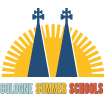Digital Gallery
The saying "A picture is worth a 1000 words" definitely applies to this section of the Cologne Summer School on Migration 2023 since it is a repository of experiences, impressions, and precious moments to come back to or to be inspired from when considering applying to our Cologne Summer Schools projects. Here we selected moments from the cultural and the academic program - the two essential components of our Cologne Summer Schools programs that make your participation in a Cologne Summer School a truly unique experience, both academically and culturally.
International Picnic
One of the most appreciated activities at the Cologne Summer School was the international picnic - the well deserved celebration of the first week. The picnic took place in the park in front of the University and was the perfect occasion for sharing food, drinks, traditions and cultures and enjoying the summer in Cologne. Every participant brought a typical local dish from their home country and shared how, with whom, and on what occasion it is eaten. They tasted a lot of different flavours and learnt about festivities and cultural practices from all over the world. It was a wonderful get-together on a sunny summer evening in Cologne. The highlight of the picnic was the intercultural exchange of food that turned into a dance party with typical songs from the participants' home countries. For many students, the international picnic was one of the best times spent together.
The Humanitarian Disaster of our Time: Why is the Number of Refugees Growing?
A talk with Chris Melzer, Senior External Relations Officer (Germany) at United Nations High Commissioner for Refugees (UNHCR)
Chris joined us online from the head office of UNHCR in Berlin. He introduced the highly relevant topic of refuge and the growth of numbers of refugees in the last years. He started with a short introduction into the founding of the UNHCR. The initial purpose of UNHCR, established in the aftermath of the Second World War, was actually focused only on European refugees who lost their homes or had to flee. The mission of this challenging post-war time was summarized by the quote:
"We were given three years to complete this work, and then disband." *
It turned out that the work was never done and that UNHCR was always needed in one way or another. Little did they know that the numerous invasions in North Africa and Asia, in particular in the 1980s, in South America and in Middle Asia in the 2000s will make the number of refugees explode. The following conflicts, e.g. in Syria, in the beginning of 2011 resulted in rapid grow of refugees. People being forced to flee is unfortunately still a relevant topic on a global basis. The recent wars in Ukraine and Gaza only illustrate the global repercussions of forced migration and the need for support and sustainable decision making in terms of refugees.
Chris introduced the definition of a refugee according to the Geneva Convention of 1951 an discussed with us its implications. When talking about forced migration and flight it is essential to consider the circumstances and challenges that people experience. Definitions give a context to a topic, but the real people being affected by a phenomenon are to be put first and prioritized within policy making. The Geneva Convention defines flight as inevitable due to life or liberty danger according to five factors - social group, political opinion, religion, race, nationality. By adding many examples of his day-to-day professional life, Chris built a solid base for discussion and questions. The participants demonstrated keen interest in the international presence of UNHCR and discussed vividly the current discourses regarding flight and refuge seeking.
*source: https://www.unhcr.org/us/about-unhcr/who-we-are/history-unhcr
Hybrid Lessons - What to Expect?
The annual Cologne Summer School has been conducted as a hybrid short-term mobility program for two years now. The participants are split into two groups - onsite and online - and come together during the designated hybrid lessons. They usually take place in the afternoon (German local time) to cover as many time zones as possible and last between 2,5 to 3 hours. The hybrid workshops consist of theoretical input, followed by practical tasks and discussions. The online participants are fully integrated into the hybrid setting and see the same information that the onsite group receives in the classroom. Everybody, regardless of the participation format, is welcome to ask questions and to contribute to the class which you can see in the gallery. In the pictures Prof. Dr. Kroneberg of the University of Cologne gave a lecture on "Ethnic Diversity and Social Cohesion" and intensively interacted with both the online and onsite group.
What are Cologne Summer Schools?
What does a Cologne Summer Schools project consist of?
Who can apply?
Are Summer Schools designed only for international students?
Which projects can I apply for?
What are the application requirements?
How much does the participation in a Cologne Summer Schools project cost?
Project Team
Project Team

NN
Project Staff Cologne Summer Schools
Telefon +49-221-470 1394
E-Mail CologneSummerSchools[at]verw.uni-koeln.de






